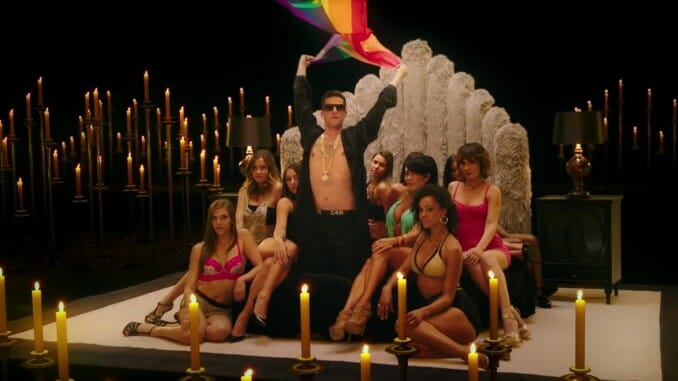Popstar and the Pop Star PSA

England’s Glastonbury Festival became something of a Roe v. Wade confessional hot spot this year. Various artists used their sets to vent their rightful frustrations in the wake of the monumental Supreme Court ruling rolling back abortion rights in the United States. Lily Allen crooned a duet of “Fuck You” with pop star Olivia Rodrigo, directed at the Supreme Court. Phoebe Bridgers led her crowd in a chant of “Fuck the Supreme Court,” with Lorde expressing a similar sentiment during her own show. Megan Thee Stallion (who has a degree focused on health administration) shared disappointment in particular with her home state of Texas. Elsewhere, artists such as Halsey, Fiona Apple and P!nk, made their public ire heard in tandem with their Britain-bound colleagues. But it was my chuckling at Kendrick Lamar’s decree of “Godspeed for women’s rights” during his time at Glastonbury that first conjured up the image of Conner4Real in my mind. It sounds like something that Conner4Real could have actually said—even though he isn’t real.
Conner Friel AKA “Conner4Real” is a fictional rapper and pop artist played by Andy Samberg in the Lonely Island’s 2016 mockumentary Popstar: Never Stop Never Stopping. The film works as a satirical takedown of the popstar documentary: The recycled formula, the clichés, the talking head interviews, the general lack of practical insight into or interrogation of its larger-than-life subject that offers a hollow pseudo-intimacy that only enhances mythology.
There is one sequence in particular, however, that reminded me of this present moment as I read about Lamar’s timely words via a trending Twitter moment. Conner debuts a video for a Macklemore-like song off his new album Connquest in support of gay rights called “Equal Rights” (which coincidentally features P!nk’s vocals on the track).
The tone-deaf song purporting allyship is anything but a selfless call for equal rights for gay people (which the latter had already acquired by that point, rendering his gesture even more useless). “Equal Rights” becomes one domino in a handful, the fall of each which sets the course for Conner’s impending cultural nosedive and, of course—as is customary for the real documentaries this film pokes fun at—his ultimate redemption.
-

-

-

-

-

-

-

-

-

-

-

-

-

-

-

-

-

-

-

-

-

-

-

-

-

-

-

-

-

-

-

-

-

-

-

-

-

-

-

-








































